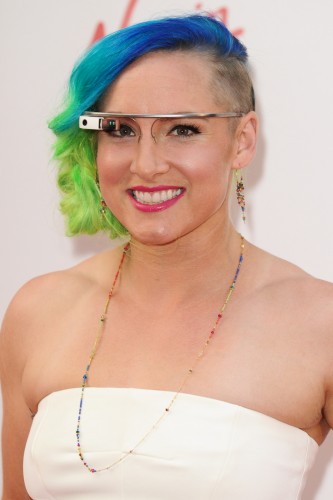The researchers from the University of Central Florida say that this is a promising technology, but not yet at least as far as road safety is concerned, and he hopes that the technology paves the way for improvements in the future * 40 subjects drove a simulation in which they were asked to apply emergency braking while using a cell phone, Google glasses and without any distraction

Researchers from the University of Central Florida say that even switching to Google Glass will not free drivers from texting, which is dangerous anyway while driving
Texting while driving with Google Glass is a distraction, not just texting while driving on the cell phone. This is according to a new study, which also adds that, on the other hand, Google glasses were better when returning the steering wheel to control after an accident (in a simulator, of course).
"Texting whether on a cell phone or Google Glasses will cause distraction and should be prohibited while driving," says Ben Sawyer, a researcher at the University of Central Florida. "The glasses did help the drivers in our study get control faster than those who were texting on cell phones. We hope that the glasses will pave the way for technology that will allow information to be transmitted while minimizing the risk."
Distracted drivers pose a risk to road users and according to the National Highway Traffic Safety Administration in the US, cell phones cause at least 1.6 million crashes each year. With the introduction of Google glasses and their competitors, some countries are considering banning drivers from wearing them while driving.
"As the distractions from cell phones threaten to become more common and more numerous in the lives of drivers, we find that the still limited advantages of Google Glasses over phones are a foreshadowing of the technological solutions to come." Sawyer said.
Sawyer, who has studied distractions and how they affect human-machine interactions for years, conducted the research at the MIT2 lab at the University of Central Florida. His specialization is in experimental psychology, industrial engineering and the human factor - according to him, gives him a unique perspective on the new technology and how it should be used.
Sawyer and his staff examined the behavior of 40 drivers aged 20-30. Everyone drove the simulator with Google glasses or with a cell phone and had to react when the vehicle in front of them suddenly braked. The researchers compared the response of users who texted on each type of device to the time they drove without a device that required them to multitask. Those who used the glasses were no better at braking in time, but after ending the call they returned to driving normally faster than their friends using cell phones.
While Google Glass users showed an improvement in performance returning from the emergency braking incident to normal driving, the device does not improve their response during the incident itself," says Sawyer. "More importantly, in every index we tested, simus in any of the types of devices had a negative effect on driving performance. Compared to those who only drove, those whose attention was divided into several things at the same time reacted more slowly and moved closer to the vehicle in front of them during the braking event.
While Google Glass gives drivers the option to use head movements and voice commands to view and respond to text messages, avoiding the use of clumsy fingers, texting with the new technology still causes distractions.
Bottom line - don't replace your phones with Google Glasses just yet just because you think it will allow you to text safely behind the wheel. That's not true, at least at this point.
A scientific article about the research will be published in the next issue of the journal Human Factors (according to Wikipedia This is a peer-reviewed journal operating since 1958 in the field of economics).
More on the same topic:
